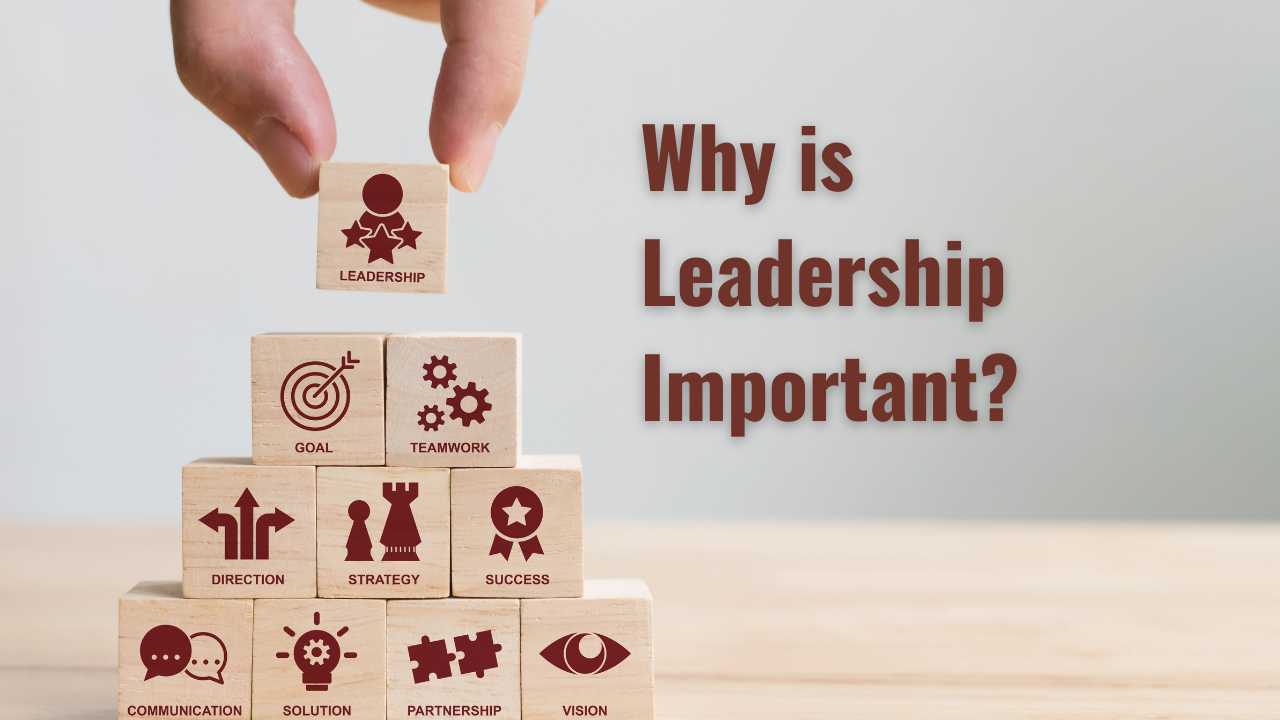
Why is Leadership Important?
 How do you define leadership? Do you have a personal definition? Some leadership institutions employ a personal mission statement, which is your first step in defining leadership.
How do you define leadership? Do you have a personal definition? Some leadership institutions employ a personal mission statement, which is your first step in defining leadership.
There are many facets to leadership, including your personal brand (or style), how you enable others to lead, and how you develop future leaders, just to name a few…
What is Leadership?
I define leadership in two words – enabling others. John Maxwell has an even shorter one-word definition- influence. My full definition is, “Enabling others to accomplish their objectives through the application of my education, training, and experience.”
I firmly believe that the most effective leaders have a combination of 3 critical components:
- Education
- Training
- Experience
Education without experience is philosophy. Many ‘certified’ coaches and trainers lack the depth of experience required to develop a leader in a credible, meaningful, and long-lasting manner.
If you have your own personal definition or a personal mission statement, you then have a means of knowing if (and when) you are leading. Sharing your definition of leadership with those you lead will help them align to your expectations while providing the coveted ‘transparency’ that many leaders strive for.
Styles and Power Types
As leaders, we should have guiding principles that provide a solid foundation for our approach to leadership. I like to compare being a leader to being a skyscraper. Skyscrapers are highly visible and have a foundation that is both deep and wide. Without this foundation, the building would topple. My foundation is a combination of the aforementioned personal definition and the deliberate application of leadership styles and power types…
A simple Google search will reveal dozens of leadership styles- the ‘four types’, the ‘seven most common…’, the ‘six main’…The same results are common for power types, such as the ‘three types’, the ‘four types’, the ‘six types’, and the ‘seven types’, and so on. Regardless of which leadership style and power type you subscribe to, it is imperative that you build your foundation based on a select set of leadership styles and power types that align with your personality.
I have experienced people in leadership positions who did not have a deep and wide foundation, and those leaders eventually toppled. Once you are comfortable with (and fully understand) your chosen leadership style and power type, you can blend them to deliver the proper leadership that any situation calls for. To do this, your leadership style and power type must reside in the conscious mind, meaning that you are thinking of the people you are leading often, perhaps daily…
Conscious Leadership
Do you remember the great leaders that you worked for? How about the not-so-great ones? What about your teachers and coaches? Many people in leadership positions have a style that they largely inherited from early experiences rather than consciously developing their own style. This leads us to consciousness…
For me, a conscious leader has tools of leadership in the conscious mind and deploys these tools deliberately based on a situation. For example, I consistently use the ‘five why’ questioning method to get to the root cause of any issue. The cause of an issue and the solution usually present themselves by the third or fourth ‘why?’.
Lifelong Learning
Lifelong leaders are lifelong learners. The best leaders are dedicated to learning throughout their careers. Musicians and athletes always practice for the main event. Because of this, even coaches use coaching. Leadership is no different. As a matter of fact, leadership is a perishable skill… use it or lose it. Like any skill, the basics must be revisited often, and advanced training must be recurring and timely. Just as an athlete routinely practices and a musician rehearses, leaders must practice or rehearse.
Lifelong Reputation
The importance of solid leadership cannot be overstated. Again, think about the influence both good and not-so-good leaders have had on you. A great leader will influence you long after you no longer work together.
In remembering some of the great leaders in my life, I recall them having a steady hand in times of crisis, a deliberate approach to complex issues, and a willingness to let me assume greater authority and responsibility. In one case, I even remember one of my leaders putting me on a path for recovery, when he probably should have fired me. These people have never been forgotten in my lifetime…
Now let’s talk about some of the poor leaders in my life. I remember the screamer, the excessive use of foul language, the ones who led by threats and coercion, and the absent leader who was never around when the team needed a decision. The sting of working for a poor leader can also last a lifetime.
Regardless of your leadership role, you are relied on to make good decisions that are in the organization’s best interest first, the people within the organization second, and yourself last.
Culture and Values
The importance of leadership starts by establishing and modeling high culture and values. Studies have shown that Culture and Values in the workplace matter more to workers than all other categories, including pay and compensation.
What enables culture and values? Senior leadership. If you are not investing in training and education for your executive team, your culture and values will suffer, and turnover will be higher. From all perspectives, I have learned this lesson from being the newest member of a business to owning a multimillion-dollar business.
Being a leader with a solid moral and ethical character enables solid culture and values. Culture and values are shared from the top down and owned from the bottom up. The most effective leaders enable culture and model values, but each teammate must genuinely feel ownership to make positive contributions.
Components of a thriving culture include:
- Everyone having a voice
- A sense of meaningful contribution to the company’s mission
- Recognition as a subject matter expert
- Genuine concern for the well-being and success of all teammates
Leaders need teammates who want to show up every day and do a great job. Anything less is not good for the organization or the individual. If those you lead are excited to come to work every day, the potential for success is high. If, on the other hand, members of your team have a lack of energy because they are in compliance mode, the output or the product will suffer.
Leadership is Full-Time Requirement
Defining leadership, and understanding the significance of your actions as a leader, is a daily requirement to have the greatest impact on the most people within your organization. Leadership is a full-time requirement for success to flourish.
Learn more about our leadership offerings at our website…
Search our hashtags: #elevateyourleadership #robertpizzini